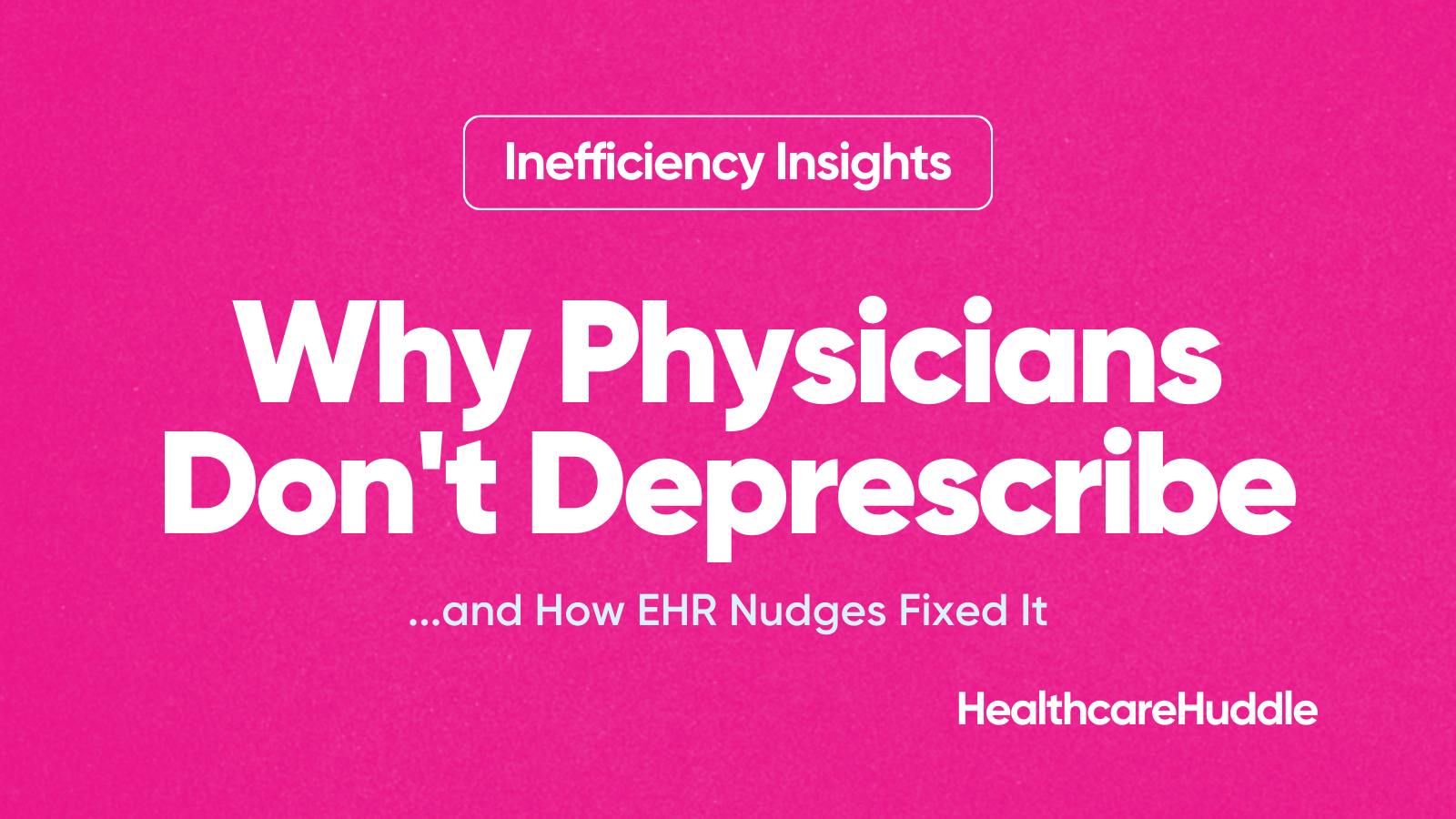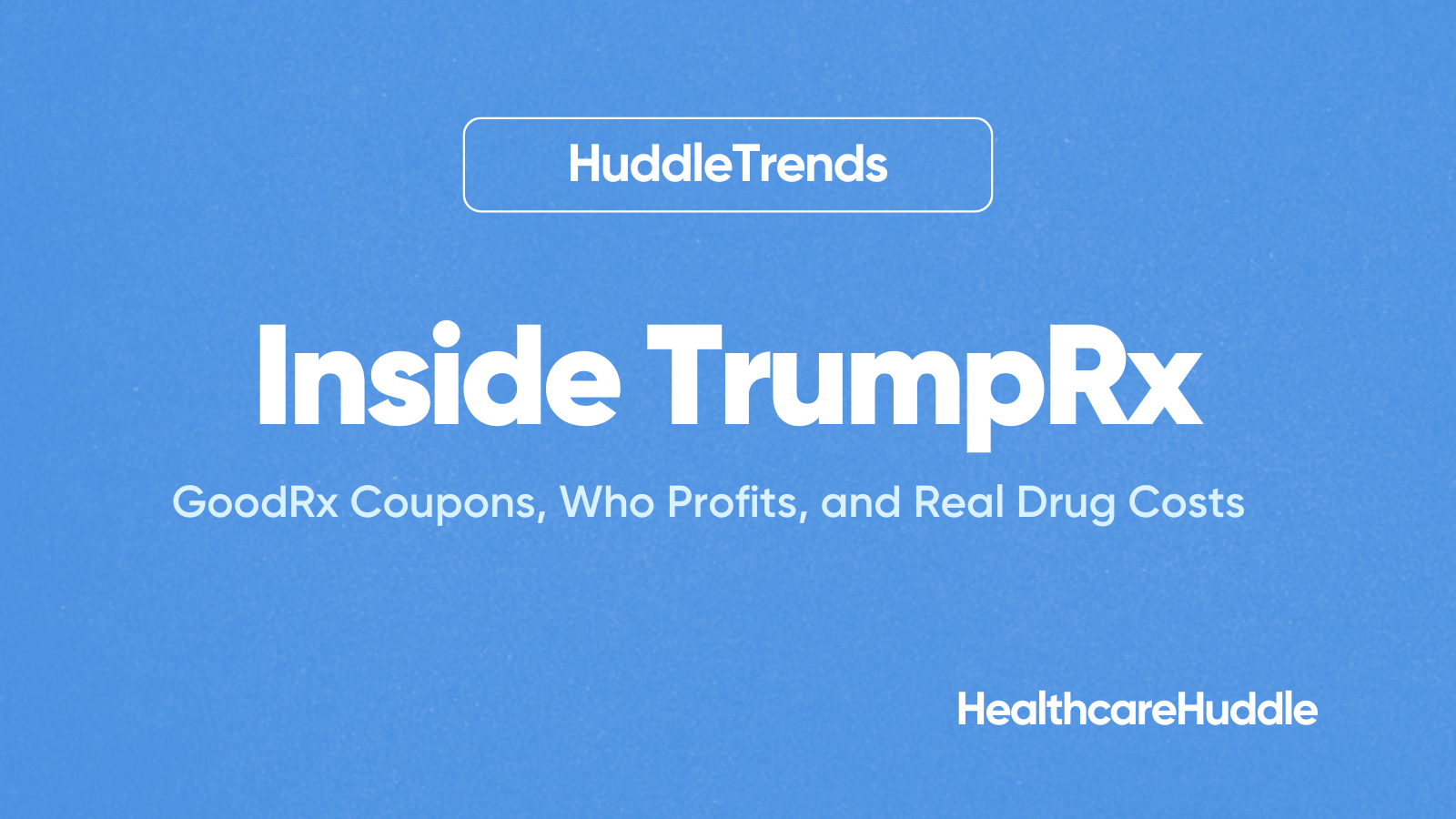HEALTHCARE HUDDLE
Labcorp Enters Longevity Market With New Wellness Panels
Incumbents are starting to enter the “longevity space,” looking to tap into the fast-growing consumer health market.
Labcorp is the latest, launching their Whole Health Solutions.
In this article, I’ll highlight Labcorp’s latest service, give a quick overview of the “longevity” space, and tell you what this means for patients, physicians, and the health system at large.
Labcorp’s Whole Health Solutions
Labcorp’s Whole Health Solutions is designed for providers focused on “holistic care.” Think functional medicine, integrative medicine, and some primary care docs (though I’d bet more of the former than the latter).
The service includes lab panels that test for over 1,000 biomarkers, such as:
Cardiometabolic panels
Nutrient panels
Hormone panels
A “Men’s Whole Body Wellness Panel”
A “Women’s Whole Body Wellness Panel”
From what I can tell, the individual tests in these panels aren’t new. What’s new is how Labcorp is bundling them—essentially packaging existing tests into themed panels that providers can order more easily. Kind of like me grouping past articles into an “Artificial Intelligence” or “Policy” series.
It also looks like this service isn’t available directly to consumers—they have to go through a provider. And whether insurance will cover a panel of tests like this is another question.
The Longevity Space
I covered the longevity space a while back when Function Health acquired Ezra. At its core, the “longevity” space is all about health tools—like lab tests and wearables—designed to help people live longer, healthier lives.
In the past few years, startups have popped up across the board, all betting on one idea: that people will pay out-of-pocket to proactively monitor their health, even without insurance coverage. I’ll admit I’ve fallen into that camp (s/o WHOOP—though night shifts definitely aren’t boosting my longevity).
The market is growing fast. It’s expected to hit $600B by the end of this year.
In the lab testing world, here are a few of the players trying to carve out their slice:
From what I can tell, most of the above companies—except for Quest—are outsourcing their lab testing. Quest and Labcorp can do it all in-house, which gives them a big cost advantage.
Dashevsky’s Dissection
To be honest, I’m still trying to wrap my head around the longevity space—from a physician’s perspective.
From the patient side, I get it. I’ve been tuned into this space since my high school track and triathlon days, wearing a Garmin that tracked every stride, stroke, and heartbeat—spitting out my VO2 max and “fitness age.” It was motivating. Now, I wear a WHOOP 24/7 and see firsthand the toll that night shifts, late meals, and raising a kid take on my recovery. The insights are valuable and encourage healthier habits. That’s a win.
But as a physician, I find myself scratching my head. Isn’t my job already to help patients live longer and healthier lives? When I review CGM data, titrate insulin or GLP-1s, and manage chronic conditions—that’s longevity, right? Or is that just…medicine? At some point, “longevity” starts to feel more like a branding play—healthcare rebranded for the wellness-savvy, cash-paying consumer.
Then there’s the question of these expanded lab panels. What’s a physician supposed to do with the results of 30 or 40 tests? For most routine checkups, a CBC, BMP, lipid panel (+/- ApoB, Lp(a)), and A1c usually covers it. But if an asymptomatic patient shows a mildly elevated CRP—what then? Refer to rheumatology? GI? Chase a red herring?
That’s the bigger concern: unnecessary testing can trigger costly and unnecessary downstream workups. From a health system perspective, it’s inefficient and expensive.
But for independent physicians—especially those with direct-to-consumer models—offering “longevity panels” might be a way to stand out. It’s a clean, marketable product. Patients may not know what ApoB is, but “Women’s Comprehensive Hormone Panel” or “Longevity & Vitality Panel” has a clear appeal. It packages something complex into something accessible—and that can be powerful, even if it’s mostly repackaging.
So here’s my working take on the longevity space:
The upside: Longevity services empower patients. They make health data accessible, promote proactive behavior, and can motivate lifestyle changes. For independent or D2C physicians, they’re also a clear value-add—packaged in a way that’s easy to market and understand.
The downside: From a clinical standpoint, the utility is questionable. Many of these panels include tests with limited actionability for otherwise healthy patients, which risks over-diagnosis, unnecessary referrals, and wasted healthcare dollars. And for physicians rooted in evidence-based medicine, the flood of extra data can create more noise than signal.
Longevity might be the buzzword. But whether it’s a breakthrough or just good branding depends on how it’s used.

🔒 PREMIUM CONTENT THIS WEEK
What you’re missing
While you’re reading this, Huddle+ members are diving deeper into the topics that matter most.
Here’s what they saw this week:
Complexity is Profitable: How the U.S. Healthcare System Became So Fragmented: Ever wonder why our system is so complex? Spoiler: it’s not by accident. I break down how layers of administrative bloat, opaque pricing, and fragmented networks became baked into U.S. healthcare—and why complexity is a business model, not a bug.
Health Insurers Explained: How the Middlemen Shape U.S. Care: Think insurers just pay the bills? Think again. I explore how they rose to power, how they profit off the system, and what it means for patients, physicians, and the future of healthcare reform.
Reflections on PGY-2: Parenthood, Night Shifts, and Growth: It’s been a year of sleepless nights—inside and outside the hospital. I reflect on how becoming a new parent while working overnight shifts reshaped my perspective on medicine, priorities, and personal growth. One of my most personal pieces yet.
The Chaos Inside RFK Jr.’s HHS Takeover: What happens when political ideology meets public health? I break down the budget cuts, agency restructuring, and potential fallout from RFK Jr.’s first six months at the helm of HHS. Spoiler: it’s a warning sign for science, safety, and the future of regulation.
How Healthcare Really Works: The system is more than just medicine. This new HuddleU course explores the hidden forces shaping healthcare: hospital finances, insurance games, drug pricing, and more. (Access via The Huddle Community). If you’re serious about understanding the business behind the practice—and want to grow your impact—upgrade here.








